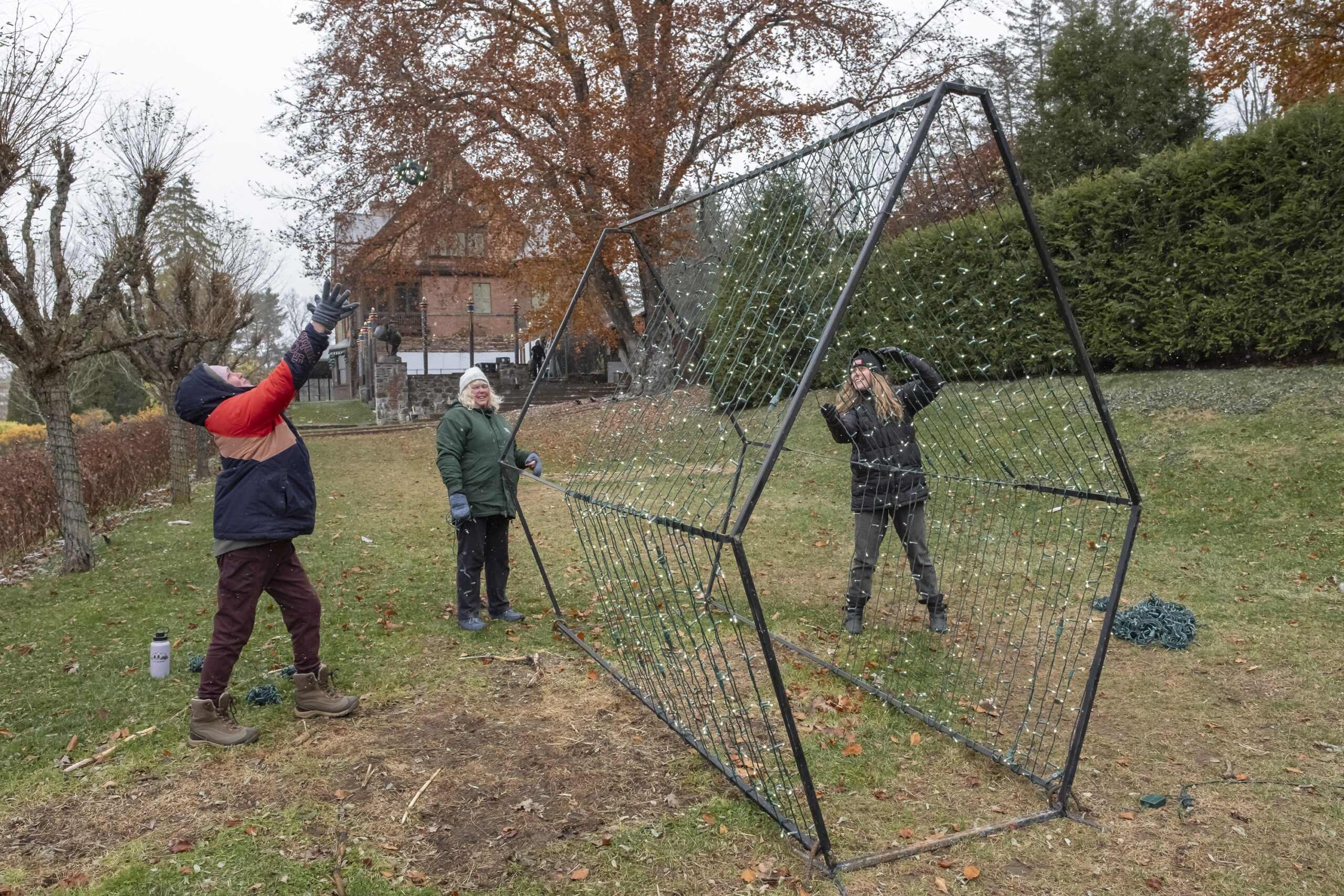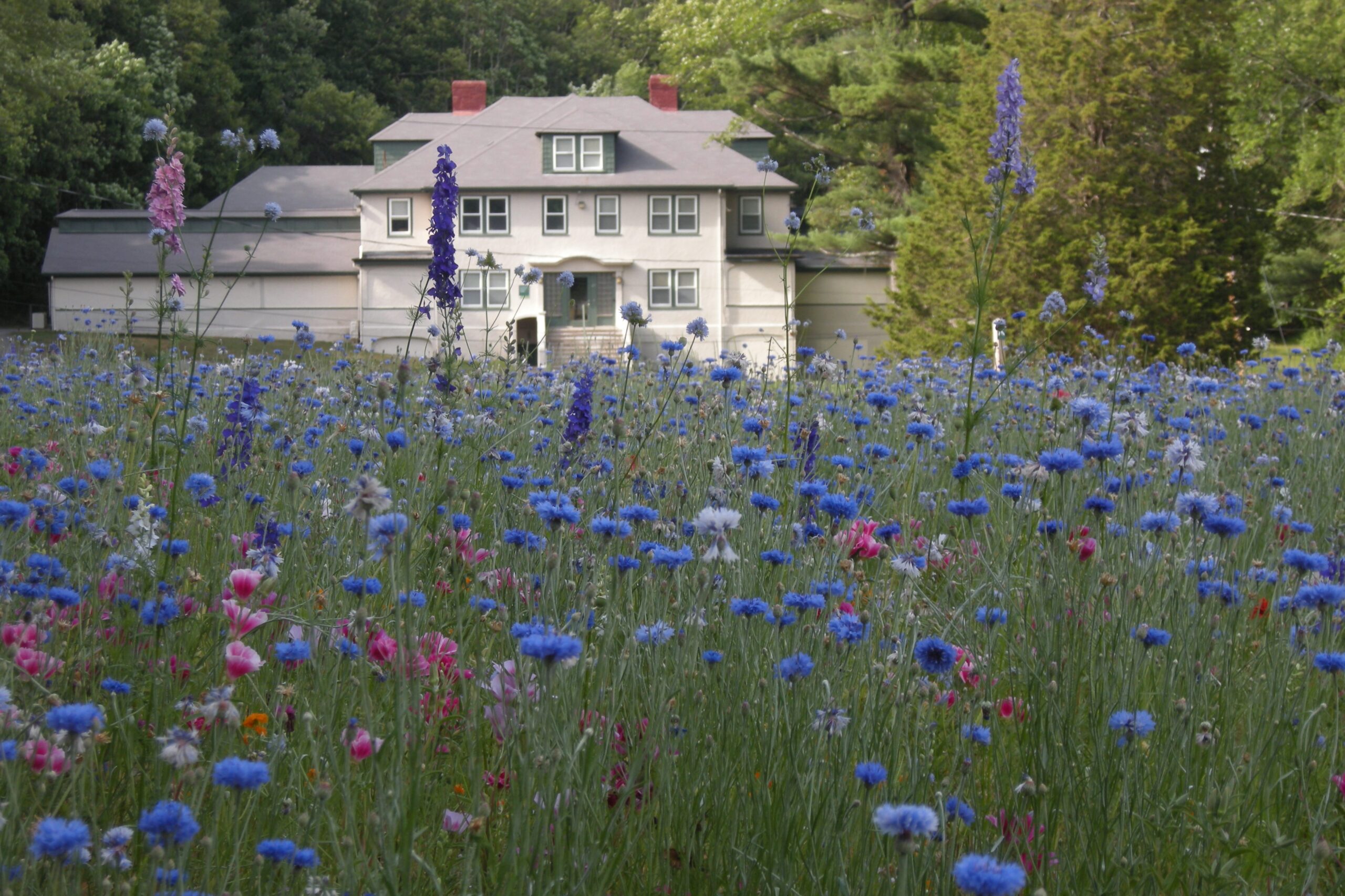
The ARC in 2016. The Kendall family converted the Sanatorium’s screen porches to create collections space when they opened the whaling museum.
Hidden on the edge of a wildlife sanctuary in Sharon sit two beige and stone buildings previously used as both a pulmonary disease sanitorium and whaling museum. But since 2008 these unassuming buildings have held the keys to history as the Trustees Archives & Research Center (the ARC).
Within its walls sit 7,500 square feet of climate-controlled storage, 6,000 linear feet of high-density compact shelving, and more than 7,600 individually identified maps, plans, and aerials. All told, the ARC safely stores Trustees institutional history, governance records, stewardship materials, and more than 100 historical collections from our special places across Massachusetts.
“Most of our historical manuscript collections come in along with the property,” said Trustees Archivist Jodi Devine. “It is exciting when we hear from people with other personal connections to a property, such as memories of visiting as a child or who had relatives who worked at the property in the past.”
Devine and Digital Archivist Sarah Hayes diligently process each collection—which often contain hundreds of items each—into a logical and accessible order for anyone who needs them. The two archivists also assist researchers in discovering the information and materials they need through in-person appointments or remote research requests.
History Comes in All Formats
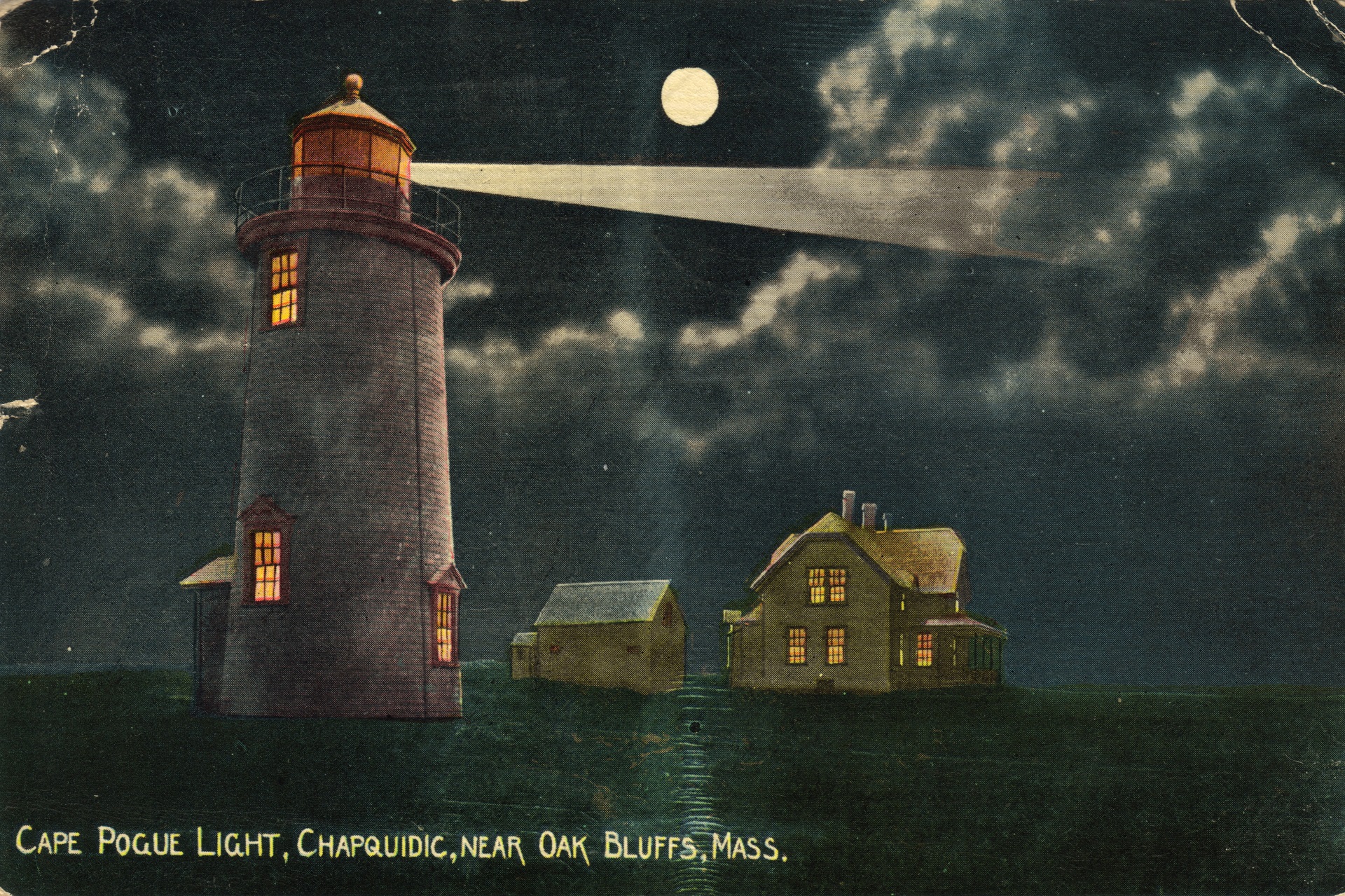
Cape Poge Lighthouse postcard. Published by Tichnor Bros. Inc., Boston, Mass., circa 1912
The historical materials stored at the ARC range from old papers and books to photographs, audio cassettes, movie reels, floppy disks, blueprints, and shiny ceremonial shovels. There are even agricultural ribbons for prize-winning pigs, historic postcards of the Cape Poge lighthouse (pictured above), and books inscribed by Ralph Waldo Emerson.
“I think it’s important to remember that a lot can be learned from very mundane objects,” said Hayes. “We don’t know what questions people might ask in the future or where those answers might be found. Maybe it’s a letter, maybe it’s a shovel, maybe it’s a recipe for making large amounts of butter in one go.”
A Hub for Trustees Collections
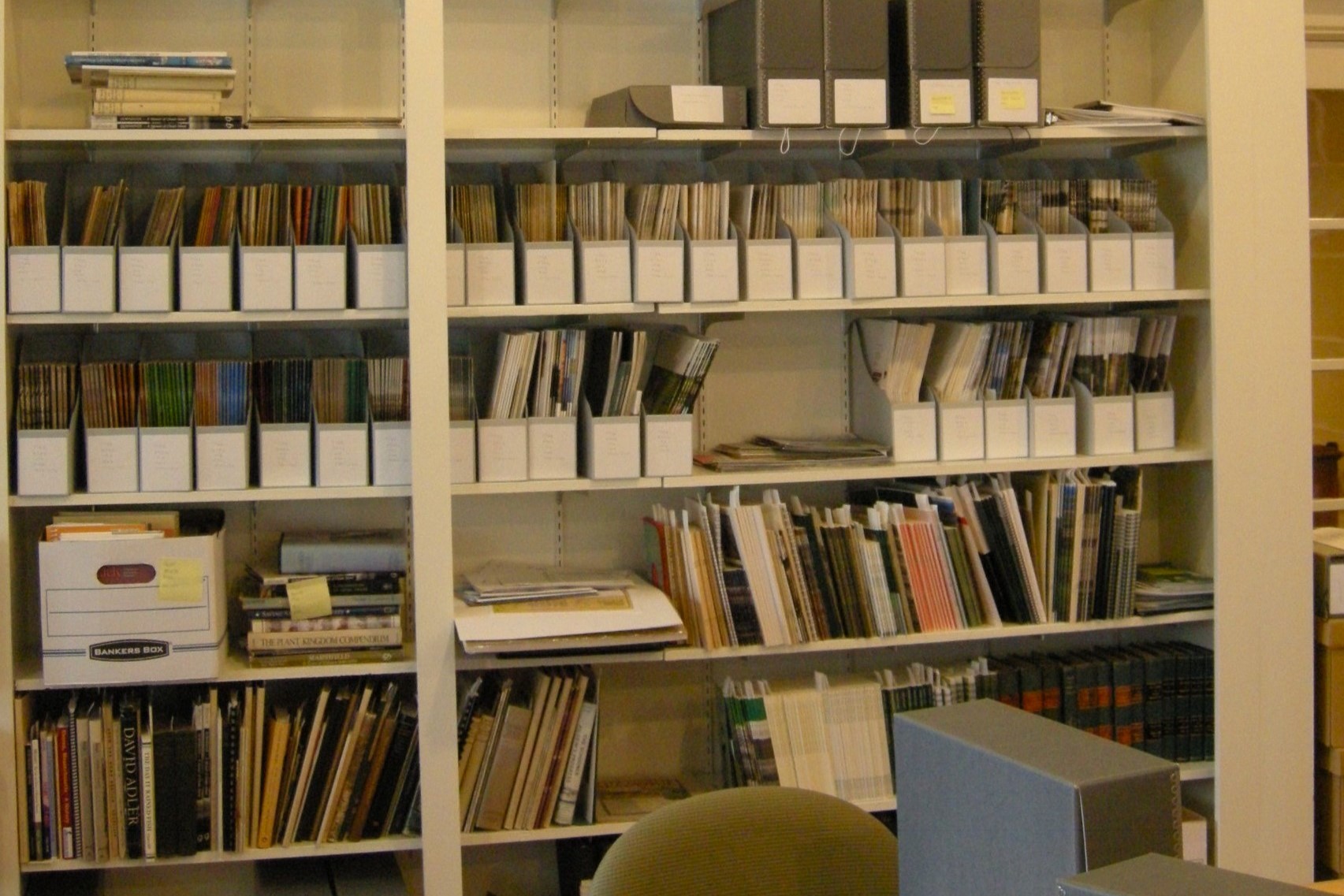
Annual Reports and issues of Special Places on the library shelves in 2015.
Every Trustees location has at least two collections: a historic collection of its history before joining The Trustees, and a stewardship collection of the Trustees care once taking it over. However, many places—especially historic homes—come with additional collections often accumulated by the previous owner or their family. Castle Hill on the Crane Estate, for example, has seven historic collections tied to the single home.
“With so many collections, we can’t be experts on every property or subject,” said Devine. “But this means we get to learn alongside the researchers for whom we help find these resources.”
Outside of the hundreds of collections Devine and Hayes help process and preserve, the ARC also keeps institutional records for The Trustees. Board meeting minutes go back to 1891 when the organization was founded, and notable moments like centennial celebrations are always accounted for. Plus, every land conservation activity or publication—like Special Places or the Annual Report—is archived for anyone who might need it in the future.
Providing Access for All
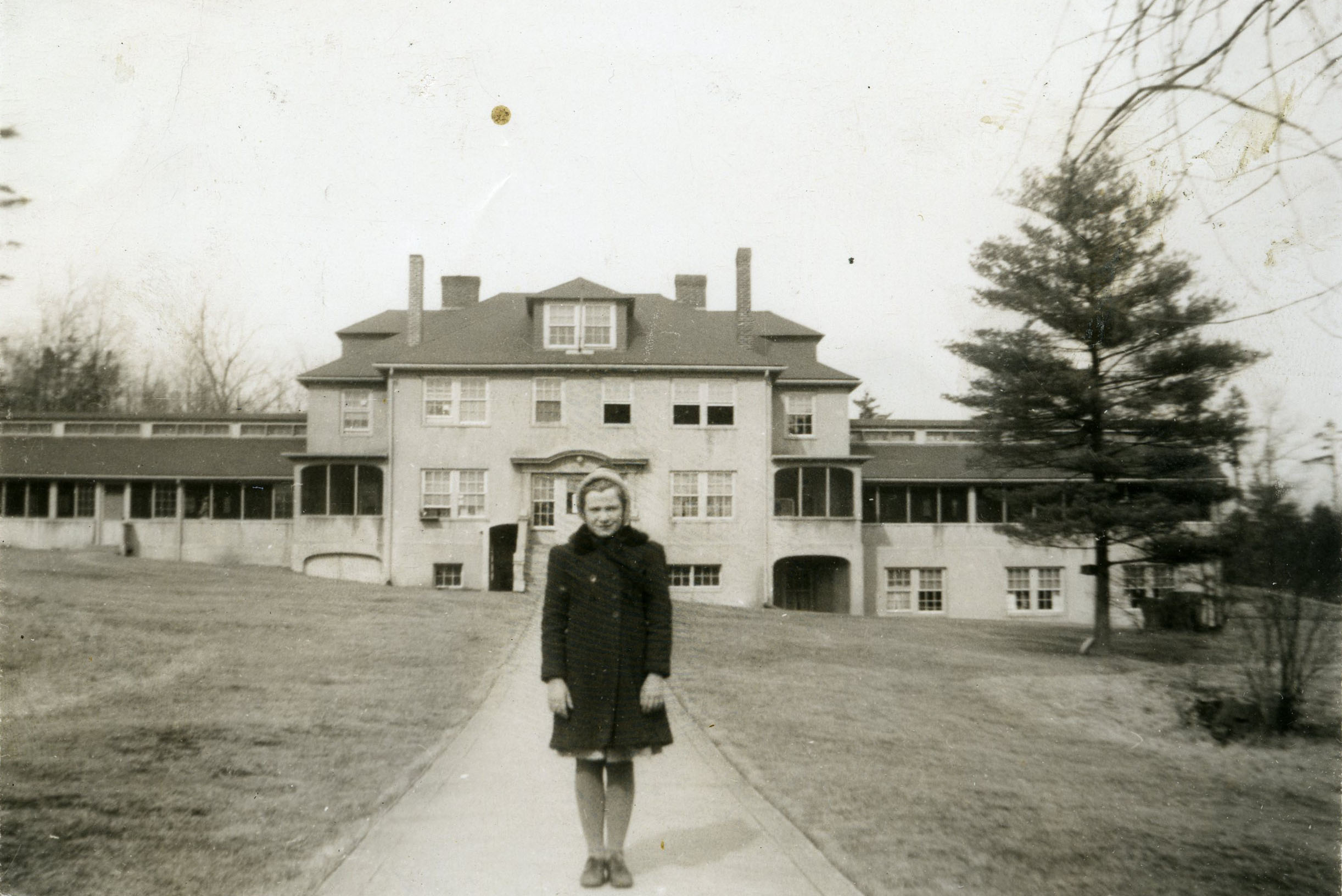
Ann Lawless in front of the Children's Pavilion in 1941. Lawless was treated for rheumatic fever at the Sharon Sanatorium from August 1941 to April 1942.
Trustees staff routinely use the ARC’s services for everything from planning property maintenance to creating the Board’s Annual Meeting presentation. But did you know that anyone from the public can submit a research query or request an appointment to explore the ARC’s extensive collections?
“We have heard from Transcendentalist scholars from California, family genealogists from England, art students in Finland, and historians in Virginia,” said Hayes. “By saving Massachusetts’ history through The Trustees, the ARC is preserving it for everyone, forever.”
If you have a research request, fill out the Research Request Form or email arc@thetrustees.org to make an in-person appointment with the ARC (appointments required, no walk-ins accepted).
Research Request Form

